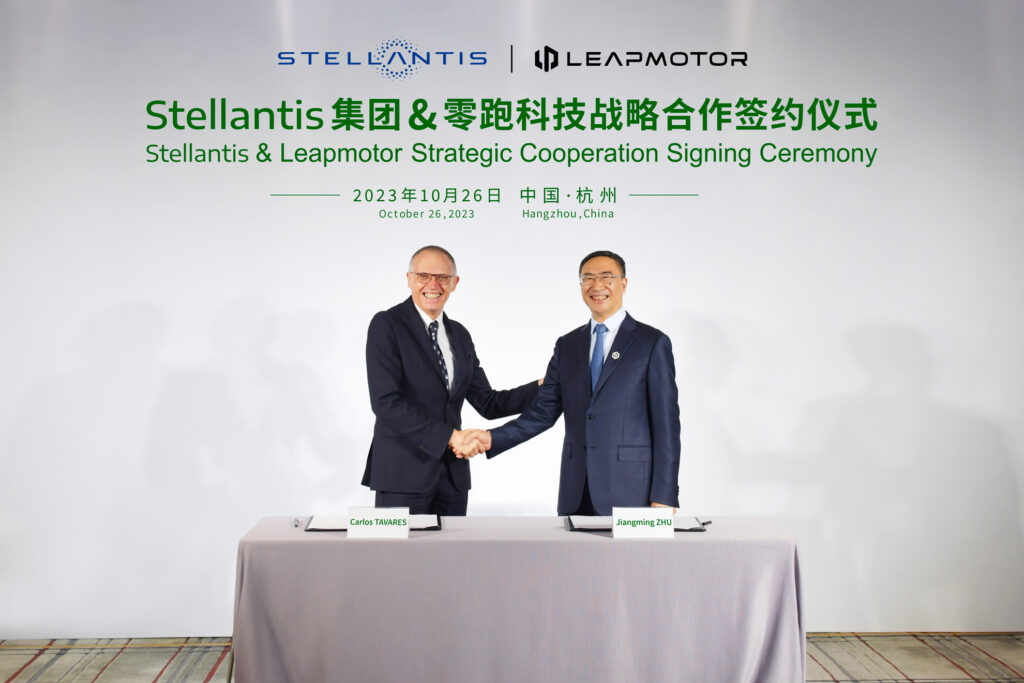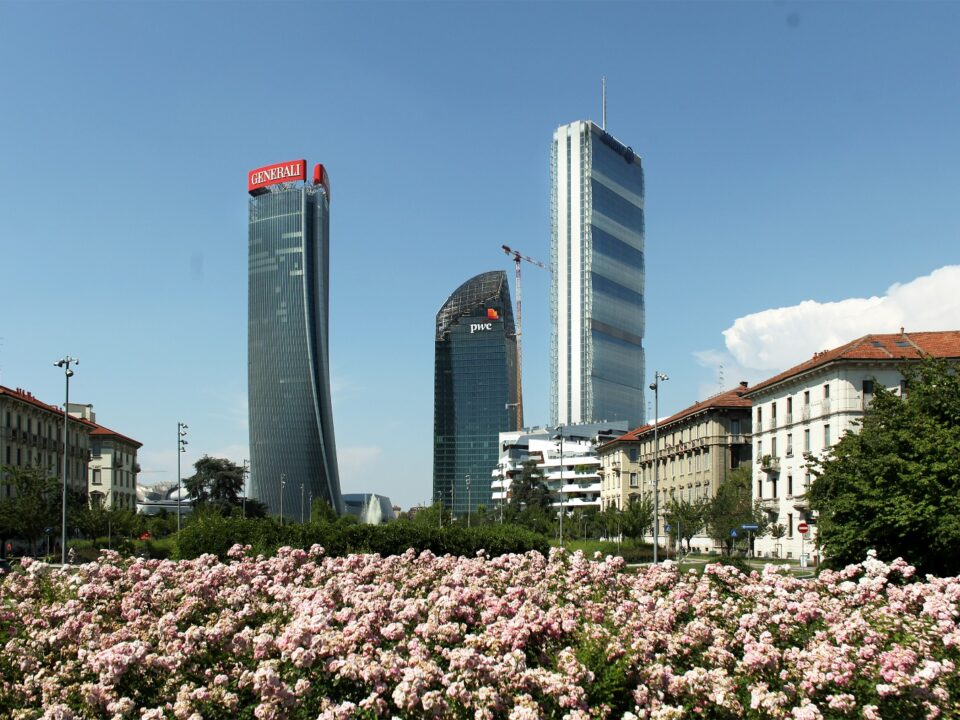
Gazprom at a loss for the first time in its history
May 24, 2024
London like New York: 600 skyscrapers in 10 years
June 7, 2024
Stellantis, the automotive giant resulting from the merger of PSA and FCA, has formalised a historic breakthrough in the European car market through its partnership with Chinese manufacturer Leapmotor.
Photo: Official press release Stellantis
September 2023 will mark the start of sales of Chinese models in Italy and other European countries, a strategic move that aims to capitalise on the growing interest in electric vehicles and exploit new market opportunities.
The strategic partnership
Just seven months after signing the binding agreement, announced in October, Stellantis finalised its EUR 1.5 billion investment in Leapmotor, acquiring a 20 per cent stake and creating Leapmotor International, a joint venture led by the automotive giant with a 51 per cent stake. This alliance gives Stellantis exclusive rights to export, sell and manufacture Leapmotor vehicles outside China.
Incoming models
Distribution will begin with two separate models: the C10 SUV, in both electric and plug-in hybrid versions, and the compact full-electric T03. The C10, designed on an 800-volt Leap 3.0 platform, offers a 420-kilometre WLTP range and a 5-star Euro NCAP safety rating, positioning it as a direct competitor to Tesla sedans. On the other hand, the T03 offers a more affordable option for urban use, with a range of 265 kilometres and a price tag of around 20,000 euros.
Geographical expansion and sales network support
Stellantis plans to introduce Leapmotor vehicles in nine European countries, supported by at least 200 sales outlets. With a gradual expansion into South America, the Middle East, Africa, India and Asia Pacific planned for the fourth quarter, the company aims for a significant global presence. The Stellantis & You dealer network will be integrated to ensure effective distribution and after-sales service.
Economic and strategic implications
The agreement represents a significant step in Stellantis’ “Dare Forward 2030” strategy, with the aim of accelerating the introduction of smart and affordable electric vehicles on the global market. Although local production is not yet foreseen, future decisions on potential European production will depend on the market impact and transformation costs of the factories.
Tavares’ considerations
Carlos Tavares, CEO of Stellantis, emphasised that the arrival of the Chinese competition was inevitable, and that the partnership with Leapmotor allows them to take advantage of the situation rather than suffer it passively. ‘We can only fit into this ongoing dynamic,’ said Tavares, highlighting how this move can serve as a ‘Trojan horse’ to capitalise on the price competitiveness of Chinese vehicles.
Local reactions and future prospects
Reactions in Italy were mixed. The reactions in Italy were The Minister of Enterprise and Made in Italy expressed the need to diversify domestic car production, while Fiom-Cgil demanded that the production of Leapmotor models take place in Stellantis plants in Italy. These statements highlight the delicate balance between adopting innovative foreign technologies and safeguarding local industrial and labour interests.
In conclusion, the partnership between Stellantis and Leapmotor not only marks the official entry of Chinese cars into the Italian and European market, but also lays the foundations for a new era in global electric mobility, with significant economic, technological and geopolitical implications.
Forbes is talking about us!
If you found this article interesting, please visit our blog or our instagram page.
FGN is your guide in the financial and investment world, to safeguard your portfolio and avoid the erosion of your savings.




